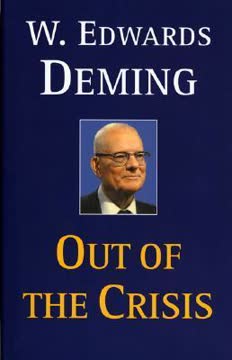Key Takeaways
1. Quality is Made in the Boardroom, Not on the Factory Floor
The quality of the output of a company can not be better than the quality directed at the top.
Top management responsibility. Quality is not just about final inspection or worker diligence; it's a strategic decision made at the highest levels of an organization. Top management must take responsibility for creating systems and processes that enable quality production.
Systemic approach to quality. Quality encompasses every aspect of the organization, from design and procurement to production and customer service. It requires a holistic view that only top management can implement and oversee.
Long-term commitment. Improving quality is not a quick fix but a long-term commitment that requires consistent effort and resources. This level of dedication can only come from the boardroom, where strategic decisions are made.
2. There is No Substitute for Knowledge in Management
Information is not knowledge.
Distinction between information and knowledge. While information is readily available, knowledge requires understanding, context, and the ability to apply information effectively. Managers must develop genuine knowledge, not just accumulate data.
Importance of continuous learning. In a rapidly changing business environment, managers must constantly update their knowledge and skills. This involves:
- Studying management theory and best practices
- Learning from industry experiences and case studies
- Developing a deep understanding of their specific industry and market
Application of knowledge. True knowledge enables managers to make informed decisions, predict outcomes, and guide their organizations effectively. It's about applying information in context, not just possessing it.
3. Continuous Improvement Requires a System-Wide Approach
A system must be managed. It will not manage itself.
Systemic thinking. Organizations are complex systems with interconnected parts. Improvement efforts must consider the entire system, not just individual components.
Process focus. Continuous improvement involves:
- Identifying and optimizing key processes
- Eliminating waste and inefficiencies
- Standardizing best practices across the organization
- Encouraging innovation at all levels
Long-term perspective. True improvement is ongoing and never-ending. It requires a shift from short-term fixes to long-term, sustainable solutions that evolve with the organization and its environment.
4. Statistical Thinking is Essential for Effective Management
Management is prediction.
Data-driven decision making. Managers must use statistical methods to:
- Understand process capabilities
- Identify trends and patterns
- Make accurate predictions
- Distinguish between common and special causes of variation
Process control. Statistical thinking enables managers to:
- Set realistic targets and specifications
- Monitor process performance
- Identify areas for improvement
- Make informed decisions about when to intervene in a process
Continuous monitoring. Statistical methods provide ongoing feedback about organizational performance, allowing for timely adjustments and improvements.
5. The Merit System and Management by Objectives are Counterproductive
The merit rating nourishes short-term performance, annihilates long-term planning, builds fear, demolishes teamwork, [and] nourishes rivalry and politics.
Flaws in traditional performance systems. Merit ratings and management by objectives often:
- Encourage short-term thinking
- Create unhealthy competition among employees
- Discourage risk-taking and innovation
- Fail to account for system-wide factors affecting individual performance
Alternative approaches. Instead of these systems, organizations should focus on:
- Fostering teamwork and collaboration
- Encouraging long-term thinking and planning
- Creating a safe environment for innovation and continuous improvement
- Recognizing and rewarding contributions to the overall system
Intrinsic motivation. Emphasize creating work environments that foster intrinsic motivation rather than relying on extrinsic rewards and punishments.
6. Cooperation, Not Competition, Drives Organizational Success
Everybody would gain.
Benefits of cooperation. Cooperation within and between organizations leads to:
- Shared knowledge and best practices
- More efficient use of resources
- Improved problem-solving capabilities
- Better overall system performance
Breaking down silos. Organizations should work to:
- Encourage cross-functional collaboration
- Share information freely across departments
- Align goals across the organization
- Foster a culture of mutual support and shared success
Extended cooperation. The benefits of cooperation extend beyond the organization to:
- Suppliers and customers in the value chain
- Industry peers for standard-setting and shared challenges
- Educational institutions for research and talent development
7. Education and Self-Improvement are Crucial for Transformation
Institute a vigorous program of education and self-improvement.
Continuous learning culture. Organizations must foster an environment where:
- Employees at all levels are encouraged to learn and grow
- Training and development are seen as investments, not costs
- Learning is tied to organizational goals and individual career paths
Broad-based education. Effective education programs should cover:
- Technical skills relevant to the job
- Statistical thinking and problem-solving methods
- Understanding of system dynamics and organizational processes
- Leadership and communication skills
Self-directed learning. Encourage employees to take ownership of their development by:
- Setting personal learning goals
- Seeking out learning opportunities
- Applying new knowledge and skills on the job
- Sharing learning with colleagues
8. Leadership Means Transforming the Organization, Not Just Managing It
The job of a leader is to accomplish transformation of his organization.
Visionary leadership. Leaders must:
- Develop and communicate a clear vision for the organization
- Create a sense of urgency for change
- Inspire and motivate others to embrace transformation
Systemic change. Transformation involves:
- Rethinking fundamental assumptions and practices
- Redesigning systems and processes
- Changing organizational culture and mindsets
- Aligning all aspects of the organization with the new vision
Personal transformation. Leaders must also:
- Continuously develop their own knowledge and skills
- Model the behaviors they want to see in the organization
- Be open to new ideas and ways of thinking
- Demonstrate commitment to the transformation process
9. The Customer is the Most Important Part of the Production Line
The consumer is the most important point on the production-line.
Customer-centric focus. Organizations must:
- Understand and anticipate customer needs
- Design products and services with the customer in mind
- Continuously gather and act on customer feedback
- Make decisions based on creating value for the customer
Quality from the customer's perspective. Quality should be defined as:
- Meeting and exceeding customer expectations
- Providing consistent and reliable products/services
- Continuously improving based on customer input
- Creating long-term customer loyalty and satisfaction
Future-oriented thinking. Consider not just current customer needs, but also:
- Emerging trends and technologies that may impact customer preferences
- Potential new markets and customer segments
- Long-term societal and environmental impacts of products/services
- Opportunities to create new customer needs through innovation
Last updated:
FAQ
1. What is The Essential Deming: Leadership Principles from the Father of Quality by W. Edwards Deming about?
- Comprehensive management philosophy: The book compiles Deming’s foundational theories on transforming management to improve quality and productivity, drawing from his speeches, papers, and seminars.
- Systemic approach: It emphasizes understanding organizations as systems where all components—people, processes, suppliers, and customers—work together toward a common aim.
- Critique of traditional practices: Deming challenges conventional management methods like merit pay, short-term thinking, and overreliance on inspection, arguing these often undermine quality.
- Statistical quality control: The book introduces statistical methods as essential tools for achieving uniformity, dependability, and economic production.
2. Why should I read The Essential Deming by W. Edwards Deming?
- Timeless management insights: The book offers foundational principles that challenge outdated management styles, providing a roadmap for sustainable quality and productivity improvements.
- Practical guidance: Readers gain actionable advice, including Deming’s 14 Points for Management, which are applicable across industries and sectors.
- Human-centered leadership: Deming’s focus on cooperation, intrinsic motivation, and removing fear from the workplace offers a humane and effective approach to leadership.
- Proven success stories: The book details Deming’s influence on Japan’s industrial revolution, demonstrating the real-world impact of his methods.
3. What are the key takeaways from The Essential Deming by W. Edwards Deming?
- Best efforts are not enough: Without proper management and systemic guidance, individual hard work can actually worsen problems.
- Quality starts at the top: Only top management can make the decisions necessary to assure quality; workers cannot change systems or designs on their own.
- Profound knowledge is essential: Improvement requires understanding systems, variation, theory of knowledge, and psychology—Deming’s System of Profound Knowledge.
- Transformation is a long-term process: Meaningful change in management and quality takes years, not quick fixes.
4. What are Deming’s 14 Points for Management in The Essential Deming and how do they guide organizational transformation?
- Constancy of purpose: Focus on long-term planning and continuous improvement, not just short-term profits.
- Adopt a new philosophy: Embrace new management methods, eliminate outdated practices like inspection-based quality, and foster leadership.
- Eliminate fear and barriers: Create an environment where employees can work without fear and departments cooperate as teams.
- Continuous education and leadership: Invest in training, self-improvement, and leadership that understands systems and variation.
5. How does W. Edwards Deming define a “system” and its management in The Essential Deming?
- Interconnected components: A system is a complex of functionally related parts—people, teams, departments—working together toward a common aim.
- Clear aim required: The system must have a well-understood aim, shared by everyone, with plans for the future.
- Management’s orchestration: Management’s role is to optimize the interactions among all components, preventing harmful internal competition.
- People as integral parts: Managing people effectively within the system is the most challenging and important aspect of management.
6. What is Deming’s “System of Profound Knowledge” as described in The Essential Deming?
- Four interrelated components: (1) Appreciation for a system, (2) Knowledge about variation, (3) Theory of knowledge, and (4) Psychology.
- Foundation for transformation: This system provides the theoretical basis for understanding and improving organizations.
- Guides management action: The 14 Points for Management are derived from this system, offering practical steps for change.
- Emphasizes human behavior: Understanding intrinsic motivation and human differences is crucial for effective leadership.
7. How does Deming define “quality” and its relationship to management in The Essential Deming?
- Quality as consistency: Quality means uniformity and dependability, not necessarily the highest possible standard, but what suits the market at low cost.
- Management’s primary responsibility: Quality is determined by management decisions on design, process control, and supplier relations, not just by workers.
- Economic impact: Poor quality increases costs and demoralizes workers, while improved quality reduces costs and enhances competitiveness.
- Customer focus: Quality is ultimately defined by the consumer’s experience, which management must understand and address.
8. What is the difference between common causes and special causes of variation according to Deming in The Essential Deming?
- Common causes: These are inherent in the system and affect all workers or machines, such as poor materials or inadequate processes; only management can address them.
- Special causes: These are unusual, assignable factors specific to a person, machine, or event, like a broken tool or operator error, and can often be corrected locally.
- Importance of distinction: Confusing the two leads to ineffective management, such as blaming workers for systemic issues or tampering with stable processes.
- Statistical tools: Methods like control charts help identify and separate these causes, guiding appropriate action.
9. What role do statistical thinking and methods play in Deming’s approach in The Essential Deming?
- Foundation for improvement: Statistical methods are essential for detecting variation, identifying causes, and measuring process stability.
- Process control: Tools like control charts and run charts help monitor production and signal when to investigate or maintain processes.
- Informed decision-making: Proper sampling and understanding data limitations prevent biases and errors in management decisions.
- Management responsibility: Statistical thinking is a vital part of management’s role, not just for statisticians.
10. What are Deming’s views on merit pay and performance appraisals in The Essential Deming?
- Merit systems as harmful: Deming calls annual appraisals and merit ratings “destroyers of people” that create fear, rivalry, and short-term thinking.
- Unfair and ineffective: These systems punish normal variation and fail to reward efforts to improve the system.
- Leadership over judgment: Deming advocates for leadership that coaches and supports individuals, focusing on long-term improvement.
- Recognition of true performance: Outstanding contributions should be recognized based on sustained improvement, not arbitrary rankings.
11. How does Deming address cooperation and competition in The Essential Deming?
- Cooperation over competition: Management should foster cooperation within and between organizations, suppliers, and customers to optimize the whole system.
- Monopolies and cooperation: Properly managed monopolies can provide maximum benefit through systemic cooperation, as seen with Bell Telephone Laboratories.
- Barriers to cooperation: Antitrust laws and short-term profit motives often hinder beneficial cooperation, leading to suboptimization.
- Examples of success: Standardization, mutual aid among fire departments, and long-term supplier relationships illustrate the power of cooperation.
12. How did Deming’s work influence Japan’s industrial quality revolution, as described in The Essential Deming?
- Early engagement: Deming was invited by Japanese industry leaders in 1950 to teach statistical quality control, sparking Japan’s quality movement.
- Management commitment: Japanese top management embraced Deming’s principles, taking responsibility for quality and systemic improvement.
- Education and teamwork: Japan established extensive training and QC circles, involving workers in continuous improvement.
- Remarkable results: Japanese industries quickly improved productivity, quality, and global competitiveness, largely attributed to Deming’s teachings.
Review Summary
The Essential Deming receives mostly positive reviews, with readers praising its valuable insights into quality management and leadership principles. Many appreciate Deming's timeless ideas, though some find the book's organization and repetitive nature challenging. Readers highlight the book's relevance to modern business practices and its thought-provoking content. While some consider it dense and outdated, others view it as an essential read for managers and those interested in organizational improvement. The collection of Deming's writings provides a comprehensive overview of his philosophy, albeit with mixed opinions on its accessibility.
Similar Books
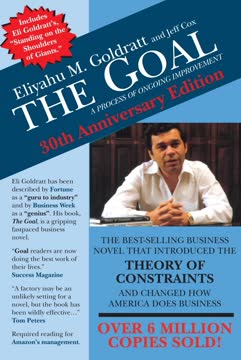

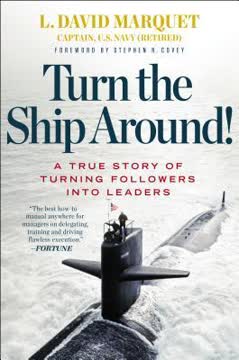


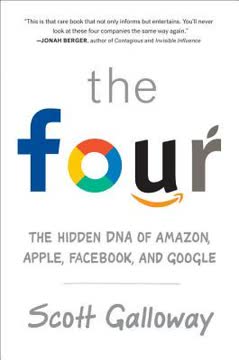
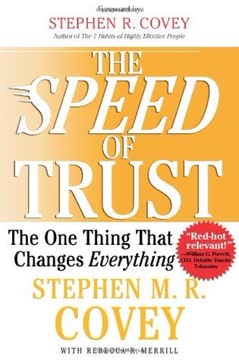
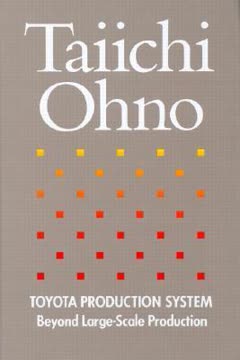


Download PDF
Download EPUB
.epub digital book format is ideal for reading ebooks on phones, tablets, and e-readers.

